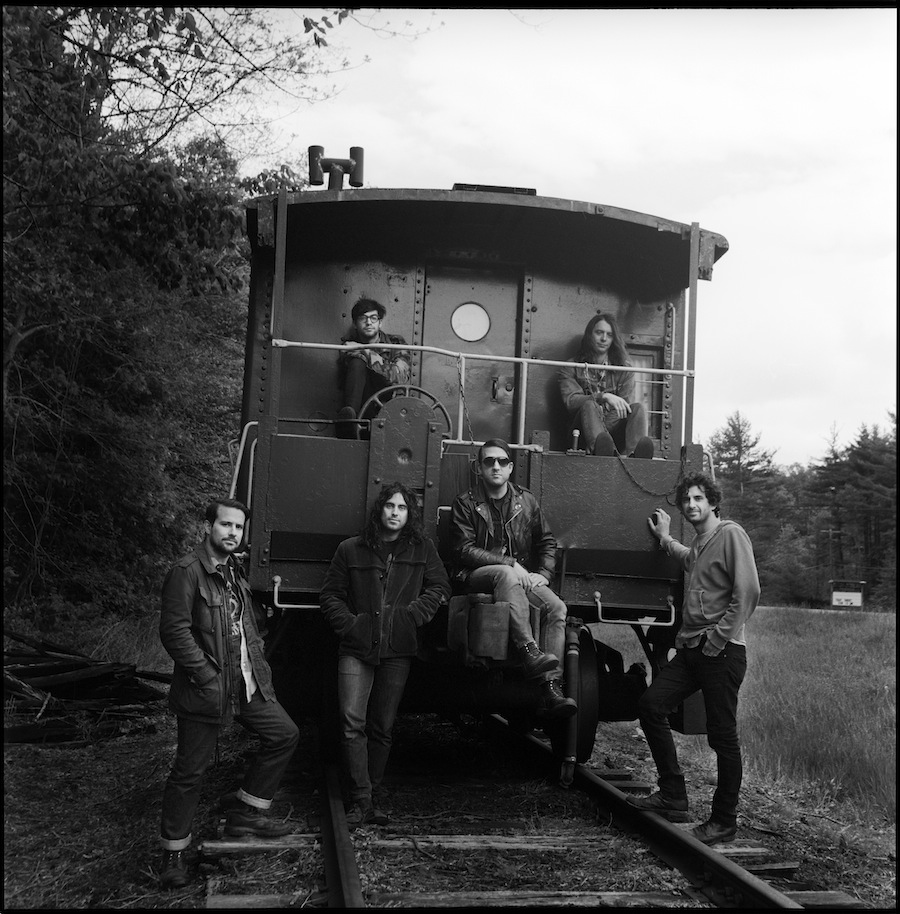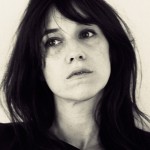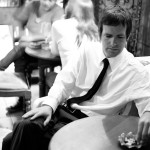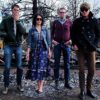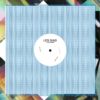Words by Cassie Marketos
I first met The Men at a packed Death By Audio show, where the Brooklyn venue was more like a vaporized steam room–equal parts sweat and beer vapor. Not that any of the fiercely exuberant audience members seemed to notice or care.
It was awesome.
Two years later, they haven’t broken step. After peppering the world with a series of singles, and a couple of trash-punk hot messes and critically hailed albums, they’ve already released their third proper LP, New Moon. Recorded over the span of two weeks while the dudes were quarantined at a friend-of-a-friend’s cabin in upstate New York, the new album is still a sweaty, open-mouthed kiss to their myriad influences–everything from Spacemen 3 to the spazzier side of Dinosaur Jr.–but with a healthy swig of good ol’ fashioned country and the occasional snap-crackle-pop of field-recorded campfires.
In the following exclusive interview–their first since landing on the cover of self-titled with a slightly different lineup–the entire band sits down to discuss killer wasps, Neil Young, and their next album…
You recorded this entire album in Upstate New York. How come?
Ben Goldberg: We really wanted to get out of town. I’ve made a lot of records in New York City; I’m from New York City. Working in a studio in the city has its advantages. Like you can do a couple days and then go back to your life then do a couple days. But there’s disadvantages to that as well. People are more likely to be checking their phone all the time if you’re at a studio in town. There’s just the pressure of ‘What are you going to do after the day is done?’ We just wanted to divorce ourselves completely from that experience and try something new. See what it was like when we could just have total freedom to do whatever we wanted 24/7.
No cell reception up there?
Ben: No, there’s a landline, and that’s it.
Did you write the songs before you went up there?
Mark Perro: There were three of them that we were touring on for a few months beforehand, but the rest of them we worked out up there. People came in with some structures and things, but we fleshed out the rest of them. We did like 19 songs, so we fleshed out about 16 of them up there, when we were all together.
Did you record the songs live? It sounds like you stood in a room and…melted your faces off.
Ben: [Everyone laughs] Almost everything was live–the vocals, too. We barely added anything; a little bit of background vocals sometime, a clap thing sometimes.
Mark: A little tambourine…The live recording process is really important to all of us. It’s something that a lot of bands do, and I think it yields a really distinctive result.
In what way?
Ben: Once you start overdubbing and layering and adding in a million things…I dunno.
Mark: We usually do everything in one or two takes, and I think it’s more important to try to get a good feeling. If you start breaking instruments apart and breaking layers apart, you lose some of that cohesiveness that comes if you just do it once and everybody’s feeling good about it. It sounds a lot better even if there’s some mistakes, which…a lot of the time there are. [Band laughs] That adds to it. The vibe is right. We just try to capture more of that, I guess.
When did you decide to name it New Moon?
Ben: The name was the longest part of the process, honestly!
It seems like your titles are fairly thematic, no? First there was Leave Home, then Open Your Heart, now New Moon–like new horizons?
Nick Chiericozzi: We couldn’t think of a title for a long time. There was that supermoon that happened in May, when the moon was like 20,000 miles closer to the Earth, so we all went out and looked at the moon a lot. But that didn’t really factor its way into the title [laughs].
Mark: New Moon was one of the first things we said, actually, but we never even really liked it that much. It just kept lingering around. We probably had like 100 different titles–a looseleaf full of titles–and we didn’t like anything at all. But this one just stuck.
So you resigned yourself to New Moon?
Rich Samis: [Laughter] It’s kind of one of those things, where you want to have your experience adequately translated into a title, and you just can’t put it into words–our experience up there, writing those songs. There was just all that freedom up there, so how were we going to translate that into a title? It’s just…you could never get it. So New Moon is what it became.
Speaking of freedom, you guys were up there for two weeks. Was it hard not being able to walk away from one another at the end of a day?
Ben: That was what was great about it–you could. It was on the side of a mountain so if you needed a minute or at the end of the day, you could literally just hike up a mountain and stare at the sky.
Mark: Yeah, there was a lot of space; it wasn’t too claustrophobic.
What was an average day like?
Nick: We woke up and made breakfast and coffee–a lot of French press coffee. We stayed up pretty late, like we started working about 1 p.m. maybe, and we’d work until about midnight. We’d work ’til 6, eat, come back, keep working.
Mark: There were a couple sessions where we built a fire outside and we’d play at night.
Ben: We recorded a bunch of stuff around the fire too.
Was “High & Lonesome” one of those songs?
Ben: [Laughter] No…
Mark: But it sounds like it! That was recorded in the evening. The stuff around the fire was mostly acoustic stuff. We just dragged a couple mics a quarter mile from the house to this little fire pit, and cabled it back to the house.
Which songs were those?
Ben: They’re a bunch of acoustic versions of some of the songs we’d recorded electric. And then there were one, two, or three things that were different.
Mark: Kinda jams. That stuff’s not on New Moon; there’s another new EP that’s called Campfire Songs that’s just gonna have all that stuff on it. I think that’s a special edition that’ll come out in the summer.
Nick: There’s one song on that, where you can actually hear the fire pop.
Mark: We had a wasp holocaust going down.
All: Ohhh yeahhhh! [Laughter]
Mark: The house got infested by a wasp’s nest, I don’t know what happened. There were about 15-20 wasps flying around in the main room that we were tracking in, and Nick went on some kind of homicidal rampage, and eliminated them one by one.
Ben: He was a different person after that.
Mark: It was pretty intense. A lot of wasps.
Were you guys experienced woodsmen before this? Who built the fire?
Mark: It’s hard to build a fire!
Nick: We built a really nice huge one, spent a couple of hours working on it. We chopped some wood! I learned how to chop wood.
Kevin Faulkner: I’m not really a nature boy; I spend most of my time inside.
You guys have mentioned liking country music before; what music were you listening to while you recorded?
Mark: We all brought up some records and a turntable…New Morning by Bob Dylan–we all independently brought up a copy of that, so we had like four or five copies. Tonight’s the Night, Sweetheart of the Rodeo, stuff like that. The country thing has always been there. There’s stuff on Open Your Heart that definitely reflects that kinda stuff, but I think we’re just trying to explore that stuff a little more fully. We’re a little more comfortable trying those things.
Do people ever react strongly to that, like they just want you to be a thrash-punk band and then you’re like ‘here’s a ballad’?
Ben: I dunno! Nobody’s every said anything to me.
Rich: A lot of Europeans are very honest.
What do you mean?
Rich: On the first long tour, we were without a bassist; it was just two guitars and a drummer and it was in Belgium, and this guy was like, ‘On the record, you guys are really loud! And I dunno, it was kinda washy and weak live.’ It was like, ‘Thanks, man! Cool! Thanks for being honest.’ But I like that; I think that’s cool. I’ve never had that in America, though [laughter]. Some guy in Germany was like, ‘I thought you were New York no-wave legends! I thought you’d be a lot older and louder! And all the songs just blended into each other. But I liked that one song.’ We we were trying to figure out what one song he liked.
It seems like you guys are very conscious of how you order your songs.
Ben: We plan it all around vinyl sequencing, so we think of it as an A-side and a B-side. So that’s actually the break there.
It makes sense that you’ve stuck with Sacred Bones, then–[founder Caleb Braaten] cares about records.
Ben: Absolutely–he cares about us, and we care about him.
How did you get connected?
Mark: Our friend Ryan [Naideau] plays in Nude Beach. He used to work at Academy Records, where Sacred Bones was based for a while. I don’t know how it happened for sure. Before Leave Home, we put out our own records, and I went in there, and Ryan would buy the records from me and sell them at the store. Probably the only reason he did that was because he was our friend, but somehow through that Caleb heard some records, and then him and [label manager] Taylor [Brode] came out to a show–one of our worst shows–and then that was that. We’ve been good friends ever since then.
So, where will you guys quarantine yourself next?
Rich: We can’t tell you!
Mark: We’re doing the exact opposite. We’re actually working on one right now, in New York; we have a real studio. We’re in the middle of it, and will hopefully be done soon.
Is it weird coming back to New York City, to a regular studio without the mountains?
Mark: It’s different! But I think that’s why we wanted to do it this way. As opposed to New Moon, we rehearsed these songs. In my apartment, actually. We sat up in my bedroom with a drum set, and acoustic guitars, and a little Wurlitzer piano, and we just jammed all these songs. And we went into the studio in kind of a session player mentality, and we did just a couple of takes of the songs, went in and did it and went home, normal hours, kind of. It was a totally different approach to the recording process.
Ben: Much less writing in the studio, but it was still all live. It took two days to track 13 songs.
Who writes most of your songs?
Ben: The three of us [points at Nick and Mark], but we work on stuff together.
Three people bringing original material to the table must be crazy.
Nick: It’s just the way it’s always been, so it kind of doesn’t seem that odd. I mean, most bands just have one person. My friend Brian is like, ‘Shit man, I have to write 12 more songs, I’m the only guy writing the songs.’
Mark: It makes it easy. You only have to come up with a couple ideas.
Ben: Yeah, I think we all know what it’s like to be the guy in the band, previously, that has to write everything. It’s really nice to share that. You learn from each other. Well I learn from you; I don’t know if you guys learn from me.
Mark: I think when you have more people contributing ideas, it tends to be more fruitful. You have more and different influences coming in, and everybody works together to reach the ultimate goal, which is the best song or the best record possible. When everybody’s contributing–Rich designs all our artwork, and Kevin takes all our photographs–you know, everybody contributes and has, I would hope, a pretty strong creative input into what’s going on. I think you end up with a lot better music when everyone’s invested emotionally, than when you just have one person kind of directing the show.
Kevin: It goes from your specific idea to all of us.
Mark: And it turns into something else.
Ben: That’s the most fun part for me, usually–the second or third time we play through something, hearing how all of a sudden it’s getting ornamented. ‘Oh, there’s a new counter melody; oh there’s a background vocal.’ Stuff I never would have thought of.
People love to fixate on your influences. Why do you think people do that so much with you guys versus other bands?
Nick: Leave Home, the first record that introduced us to a lot of people, was a Ramones title. And there were Spacemen 3 lyrics. I think we’re just into telling people, ‘Oh, we like this band’–MC5, things like that. I think, therefore, people do like to pull things apart; when we don’t have just one sound, it’s a whole spectrum of sound. People want to look really deep into something. It’s really just a decoy. There’s 55,000 songs out there. Do you think people pick us apart more than other bands?
I do feel like when I read music reviews of you guys, people knowledgable about music love to showcase that knowledge through dicing your songs up for their disparate influences. I think that’s why some of them love you.
Nick: I think that’s OK!
Mark: It’s easy to compartmentalize a lot of bands because you have just this one sound and you think, maybe because some of that stuff we’re talking about, sometimes our records can vary pretty greatly on what kind of sounds are going on there. And I think the normal way people approach things is to quantify it–give it a name, give it a title–so they can understand it. But if there’s something that doesn’t fit within their preconceived notion of what a song is supposed to be, maybe they get upset with that.
Nick: Or they just want to figure out what the hell it is.
Ben: At the end of the day, I dunno, they’re reacting to it in the first place, that’s cool. They’re thinking about it, that’s cool.
Do you ever think about defying categorization as having an effect on the longevity of your band? Do you worry about radio hits?
N: It’d be cool to have a radio hit [laughter].
You guys could do it! Just bring up a different set of records next time.
Nick: Hopefully we just have a sound that’s us no matter what instruments were playing. I think you said [pointing at Rich] Neil Young sounds like Neil Young, no matter what he does. Jerry Garcia’s guitar when he solos, you can tell that’s him. Anybody with personality. Hopefully we just have the personality and the sound that’s somewhat unique and not unique at the same time, you know. Relatable, I guess. But in a cool way.
So when do you wrap the record your currently recording? Are you releasing it on Sacred Bones, too?
Mark: Yeah. It’s being worked on now, and it’ll come out sometime. In the future [laughter].
Nick: That was a good interview.
You guys don’t talk to that many people do you?
[Laughter]
–
‘New Moon’ is available now on Sacred Bones.
